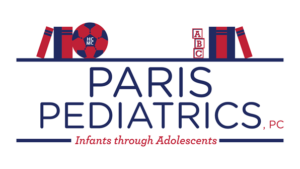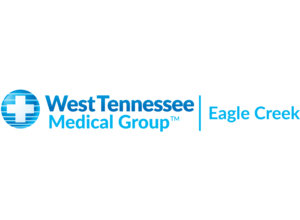Affordable Care Act
Who Needs to Have Health Insurance?
All U.S. citizens and permanent residents are required to be in possession of health insurance by January 1, 2014. An excellent website to answer most, if not all of your questions is healthcare.gov. (http://www.healthcare.gov/what-if-someone-doesnt-have-health-coverage-in-2014/) In addition, your plan will need to meet the “Minimal Essential Coverage” requirement by having: Private plans, including employer-provided insurance (including retirement plans and COBRA)
- Medicaid (for low income individuals and families)
- Medicare (for people 65 and up)
- Employer-provided insurance (including retirement plans and COBRA)
- Plans bought through the Health Insurance Marketplace (http://www.healthcare.gov/what-is-the-health-insurance-marketplace/) (for those who do not have access to any of the above); these plans are also called ‘exchanges’, and each state will have their own, although in TN we will follow the federal plan. (Note: there’s a difference between Marketplace health plans and private plans. (http://www.healthcare.gov/whats-the-difference/) ) Other plans like CHIP, TRICARE, and certain other plans for veterans and Peace Corps volunteers are also valid. Additionally, young adults up to the age of 26 can remain on their parents’ plans.
What’s it Going to Cost Me?
Some plans offered through the exchange will have lower monthly premiums, but you will likely pay more out of pocket when it comes time for a visit. Some will be higher premiums, and others will fall somewhere in the middle (such as with car insurance).?For instance, if you do not plan to have a lot of doctor’s visits, you are probably going to want to opt for the Bronze or Silver plans. If you plan to have a lot of doctor’s visits, you might want to choose the Gold or Platinum plans.?If you have very little income and under 30, you may be eligible for a catastrophic plan (http://www.healthcare.gov/can-i-buy-a-catastrophic-plan/) (again, this is analogous to catastrophic car insurance coverage). You can find out more (http://www.healthcare.gov/why-should-i-have-health-coverage/) between premiums, deductibles, co-payments, coinsurance, out-of-pocket maximums and lifetime limits.
Tax credit subsidies could offset your cost. Depending on your income and family size, you may be eligible for some discounted rates on the plan you choose. You will be able to find out your eligibility as soon as you submit your Marketplace (http://www.healthcare.gov/what-is-the-marketplace-in-my-state/)application (as early as October 1). Essentially, the lower your income, the more you will save (http://www.healthcare.gov/will-i-qualify-to-save-on-monthly-premiums/). According to a report released by Health and Human Services (http://www.hhs.gov/news/press/2013pres/07/20130718a.html),for a single person whose income is $17,325, this person’s plan could cost as low as $34 a month. A 25-year-old who purchases a silver plan without tax credit will cost $174 a month. A catastrophic plan (for those eligible) can be purchased for $117 per month. You can estimate if you qualify for subsidies using this calculator (http://kff.org/interactive/subsidy-calculator/) from The Kaiser Family Foundation.
When Will I be Required to Have Insurance?
Beginning January 1, 2014, you and any family members will be required to have coverage. You can begin enrolling in your state’s exchange beginning Tuesday, October 1, 2013. You have until March 31, 2014 to complete open enrollment in an exchange. After March 31, you won’t be able to get coverage through the marketplace until the next annual enrollment period unless you have a qualifying life event (http://www.healthcare.gov/glossary/qualifying-life-event/) (like moving to another state, marriage, divorce or pregnancy). For a personalized checklist to get you ready to apply (http://www.healthcare.gov/quick-answers/#step-1). You can even sign up for text or email updates (http://www.healthcare.gov/subscribe/).
What Happens if I Don’t Buy Insurance?
If you don’t buy insurance (http://www.healthcare.gov/what-if-someone-doesnt-have-health-coverage-in-2014/), you will be assessed a fine when you file taxes. Beginning in 2014, anyone who chooses to go without some form of available coverage will be fined $95 a year or 1% of yearly income, whichever is higher. The fee for uninsured children will be $47.50 per child, up to but not exceeding $285.?By 2016, this fine for individuals will jump to $695, or 2.5% of yearly income, whichever of the two is greater. There are some people who will not be fined, such as if someone has only been uninsured for less than three months out of the year, if your income is determined to be too low and coverage is considered to be unaffordable, or if you live in a state that has not opted for Medicaid expansion, you will not have to pay this fine. You may also file for a hardship exemption on your 2014 tax return. More information will be available on October 1, 2013 with your state’s exchange.
Why is This Happening (and Will it Really Make a Difference)?
The average cost of a three-day hospital stay is $30,000. Fixing a broken leg costs $7,500. Essentially, the government stepped in to protect consumers from debt and bankruptcy due to unmanageable health insurance costs. The plan is based on preventive care without a copay. (http://www.healthcare.gov/what-are-my-preventive-care-benefits/) (a wide range of health services, including HIV screenings, flu shots, herpes screenings, diet counseling for high risk folks, mammograms, well-woman visits, contraception and depression screenings). It holds insurance companies accountable for rate increases, and if they do invest at least eighty percent into your healthcare needs and quality improvement efforts, you may get a rebate in the mail (http://www.healthcare.gov/how-does-the-health-care-law-protect-me/) . If you made a honest mistake on your application, your insurance company is now prohibited from arbitrarily canceling your coverage (http://www.healthcare.gov/how-does-the-health-care-law-protect-me/#part=5) .
It’s estimated that 19 million young adults between 18 and 34 do not have health coverage (http://www.washingtonpost.com/blogs/wonkblog/wp/2013/06/06/will-young-adults-want-obamacare-lets-ask-aaron-smith/), largely due to cost. Under Obamacare, a whopping 17 million of 19 million uninsured young people are likely eligible for subsidies or Medicaid under Obamacare. Note: Know that if you have been covered with health insurance since March 23, 2010, you may have a grandfathered plan (http://www.healthcare.gov/what-if-i-have-a-grandfathered-health-plan/), in which case you must carefully read the fine print, as some of these provisions will not apply. For instance, grandfathered plans do not necessarily need to cover preventive care without co-pays.
How Do I Get Started?
For those planning to enroll in the health care exchange, this is what the application will look like (http://www.cms.gov/CCIIO/Resources/Forms-Reports-and-Other-Resources/Downloads)
You can also find TN’s exchange, the federal marketplace at (http://www.healthcare.gov/what-is-the-marketplace-in-my-state/) . For those who already have job-based insurance (http://www.healthcare.gov/what-if-i-have-job-based-health-insurance/), you can either keep your insurance, or might be able to switch to a marketplace plan.
For those who have been enrolled in a plan since March 23, 2010 (http://www.healthcare.gov/what-if-i-have-a-grandfathered-health-plan/), you will need to check with your employer or insurer to find out whether your plan is “grandfathered.” Health plans must disclose their grandfathered status in their plan materials and their summary of benefits and coverage. For part-time employees (http://www.healthcare.gov/what-if-im-a-part-time-employee-without-health-coverage/), there are options for coverage. For small business owners (http://www.healthcare.gov/small-businesses/) ,you can get general info, find out if you have to cover an employee, and get help from an agent or broker.?You can talk to someone for more info at (800) 318-2596.
At (http://www.healthcare.gov/connect/) , you can tweet/livechat with someone about your question from the comfort of your home anytime(available 24/7).
Still Have Questions or Need More Explanation
Contact our knowledgeable staff at Henry County Medical Center. Tina Umstead, LPN or Amy Odom, Pharmacy Assistant at (731) 644-8215 would be happy to help fill in the blanks for you. For more information visit, https://www.healthcare.gov/ or to read more about it click here.









